
September 12, 2014
 CR Readers Join Me In Discussing comiXology’s Submit And Mini-Comics As Discrete Objects
CR Readers Join Me In Discussing comiXology’s Submit And Mini-Comics As Discrete Objects

On September 11,
CR readers were asked their opinion on the idea of Mini-Comics, Handcrafted Comics and Small Press Comics as discrete objects, brought on by the sponsorship of the Small Press Expo by the Submit program run by Comic Anthology. I wrote the first essay and others followed in response.
.(JavaScript must be enabled to view this email address)
*****
Tom Spurgeon
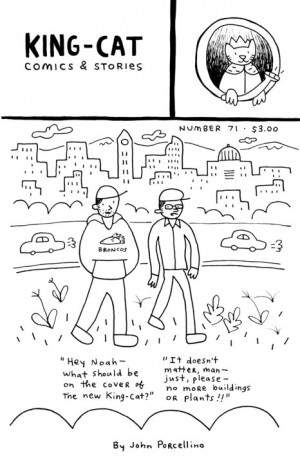
One thing that I think comes into play in terms of who participates in a program like Submit and who doesn't is cultural orientation. I watched comiXology's Chip Mosher speak at the end of the Ignatzes last year. He made a short pitch for his program, and at the end mentioned that he had drink tickets for the party that followed for anyone that wanted to come up and engage with him about it. The first person that came up to him -- the first person I saw, anyway -- was happy to maybe get a drink ticket but when Mosher began to engage with them there was a quick shift to "Oh my God, don't make me do this." That's not judgmental; I get it. I just think this supports a notion that there's a part of comics culture that doesn't want to invest the act of selling and distributing comics -- any kind of comics, any format -- with agency in a way that puts you out there as a seller or someone who would be interested in same. This seems a strange thing to say about a show of people selling things, but I still think that reluctance is a value a lot of cartoonists have.
When I attended the comiXology panel at San Diego this summer, there were a number of small press people there to express their appreciation for what having that platform has done for their comics and their comics-making. Unless I'm completely wrong, though, these were mostly genre comics of the kind that saw a benefit in having their work where publishers and a more traditional comics audience could see them as opposed to art-comics people who were grateful to put work in folks' hands. I think there's a different orientation there, and I'm not sure that a lot of alt-comics people share that desire to get their work in circulation in a way that puts them on a comics publishing related continuity.
Another thing that interests me is that mini-comics serve a wider variety of functions than comics book do, or at least this is traditionally true. I don't know that there are many comic books made that are as frequently employed as business cards, or as part of the social obligation of going to a show. Very few people make more formal comic books as a way to keep people apprised as to what they are up to. This is a great thing about mini-comics: they can be a commercial end result and a non-commercial object depending entirely on the context: they are "Porcellino's Cat," caught between two states of existence with both equally true.
While it's taken a little while for direct market comics fans and readers and makers to rewire themselves into accepting the the reading of digital comics as its own experience -- and even then, we're not all the way there -- I think it might take handcrafted comics a little while longer. This makes me wonder if we might not see more comics in the future that have a digital life as more or less
handcrafted digital comics: think of
the Emily Carroll work, or
the Kate Beaton sketchcomics, or the animated panels
Katie Skelly is using in My Pretty Vampire. At that point, you run up against the idea of programs like these as delivery systems for tablets and phones.
I also have no idea how the perception of the Amazon.com purchase of comiXology may play in terms of any of these factors, particularly the cultural ones. If the orientation is to
not involve yourself, that may mean an even lower push is necessary for you to take an option off of the table.
So I think there are challenges there for finding a commercial market for single objects, because mini-comics, handcrafted comics and small press works exist as the boundaries of commercialism, marketplaces and being objects.
The strengths and opportunities of that market, that particular choice moving forward are interesting as well. Digital markets have almost no threshold for participation, and Submit as a model reduces that threshold even further by leaving much of the physical labor costs to their creator-partners. What that means is there are fewer structural impediments than ever
not to at least explore the option as one among many available to creators and publishers. After that initial investment of a bit of time, the costs are negligible to the creator as well, at least as I'm able to see it. So I think there are opportunities for digital copies available in a variety of ways to be the final publication home for a significant amount of early and obscure work. When Tom Hart releases his next major comics work, I can imagine there being an interest in his wonderful mini-comics. Ditto Scott McCloud and his next year when
The Sculptor drops.
This also could be a place to store work that my flit in and of publishing favor, like those tied into a calendar event or the life of someone in and out of the news. My understanding of the impulses in play with a digital comics purchase are really rudimentary but I know the first time I desired a digital comic for purchase was a comic book that began to go viral as an "event" due to a plot point. I can imagine a future market that is really responsive that way, and I don't think that's an effect you can achieve on a book-to-book, creator-to-creator platform. One can also imagine a playful market, even one tied in fleeting digital exclusives. There's such a profound thing going on right now with digital comics in terms of simply making use of the massive backlog of material that I'm not sure we're doing anything but figuring out how these sales and directed, targeted pricing elements work. At some point that has to die down, and we'll begin to see comics in a different but related light.
I also think there's bound to be a greater push
for using every means at one's disposal to distribute work, whether or not you see the primary value in doing so. "Why not?" is going to do battle with "Why?" and I think has a better chance of winning the day with each passing week. I know that the cartoonists I talk to under 35 are much more open about taking advantage of very specific opportunities, opportunities that might not have been on the radar of the cartoonists I know in their 50s and 60s. Comics works according to extremely tiny margins, and at some point professional expectations are likely to conform to these very specific goals. Making hay where you can is not yet the dominant ethos in mini-comics, at least not as far as I can tell, but it's a growing one. A sales point for digital service might not be future-focused by present focused. "What can you do to help me move 10 copies of this book this weekend to go along with the 30 I'll sell at my table?"
*****
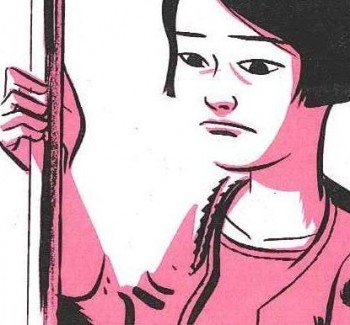 Jay Latimer
Jay Latimer
I actually prefer to read and buy digital comics over the printed variety. I have a pile of odd-sized comics from SPX that are hard to file. Digital comics are easier to read and take up no space. Having just completed a cross-country move that is a big plus.
The problem I find is that most indy comics just do not have the quality of art and story to mask a purchase worthwhile. I get that they are supposed to be "artistic" and not "professional" but still there should be a minimum standard of quality. I recently looked through one well-regarded indy publisher's website and, based on the previews, did not find one comic that I thought would be worth purchasing. The level of craft is just not there.
Examples of recent comics that I think do meet this standard would be "Shoplifter" by Michael Cho, and (based more on the plot) "Boxers and Saints" by Gene Luen Yang. Each of these comics would reward multiple readings because there is a lot going on in the art or plot.
*****
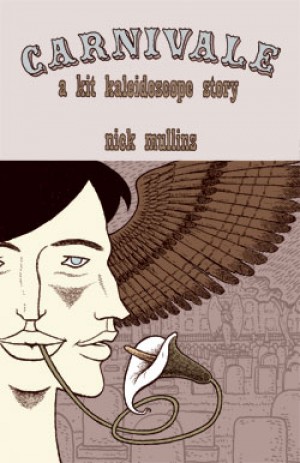 Nick Mullins
Nick Mullins
It's coincidental that you posted your initial piece about comiXology and mini comics the same day I got word that comiXology has accepted my book
Carnivale, making it the third book of mine to be listed there.
Basically my feelings about comiXology fall into your "why not" camp. comiXology seems more suited to genre comics than general fiction comics, especially in contrast to something like Sequential. But Sequential doesn't have a Submit program. And these days with most prepress being done on computer, creating a digital file for comiXology is (usually) not too much more work. So why not use it?
That being said, I don't think comiXology is comparable to mini comics as much as tumblr is. tumblr is a social media tool, which make it more, you know, social. People can instantly like and recommend work, and even make comments on it. There is an immedicay to tumblr that makes it more like minis than comiXology.
So let me get into the downsides of comiXology. For one, the Submit process takes months. One of the advantages of minis is you can throw a few together and get them into people's faces that very day. The feedback is potentially instantaneous. Because the Submit approval process takes so long, you don't get that. I'm not blaming comiXology here; I assume they get tons of submissions. Still, there's not that quick feedback. So it creates a delay between you and the response to your work.
Also, you can't see how many of your books have sold through comiXology. Maybe there's a way to do this that I haven't figured out, but I contacted comiXology about this and the response I got was that I'd receive a check every quarter for the books that have been sold. And I have. Still, it's just a check with an amount on it. I don't know which of my books sold or how many. Again, this is a disconnect between me as a creator and my books.
Then there's the rating system. It seems to me that every book comiXology has receives four out of five stars. And without any actual commentary those stars really don't mean much. Why is the book a four star and not a three or five? Who knows? My book Holiday Funeral has four stars and so does the latest Archie comic and so does the Jiro Kuwata Batman books. Are they really similar books of similar quality? The stars are pretty meaningless. Like above, as a creator it means that you are again separated from genuine feedback about your work.
So I don't think comiXology and minis really compare. They are two completely different beasts. So far, comiXology is more of a way to generate money than attention. Even then, it doesn't bring in that much for me. Still, it's not too hard to set up and once the books are up, there is nothing I need to do. It's not like consignment at a store where I have to contact people regularly and ship out books over and over again, which can be costly. With comiXology, it's a one time thing and then I receive my meager checks in the mail. So, why not?
*****
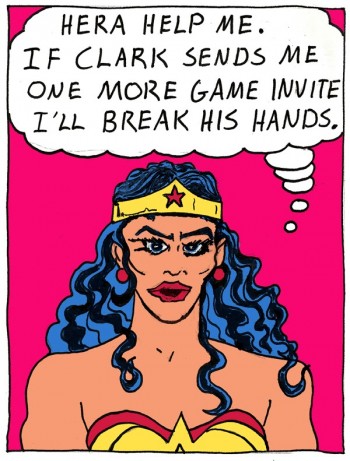 Shannon Smith
Shannon Smith
I'm going to respond to this mainly as a customer. I love Comixology and I love the Submit program. I'll buy stuff I already own as minicomics just because I want to read it on my phone while my kids are in dance class. I've also bought minicomics when I had already read the comic digitally just because I liked it so much I wanted a paper version. I want my favorite minicomics creators and small press folks to get on board with Submit and give me more ways to give them my money.
Love it.
And I love minicomics.
The good news is Comixology won't replace what minicomics are/do. For one thing, the Comixology Submit process is slow. The one complaint I've heard universally from friends that have their books on Comixology is that it takes a long time. Now, I'm sure it is still as fast or faster than print publishing but the one thing it is probably never going to be faster than is the minicomic. You can have a minicomic printed up and hour after you finish drawing the last panel. You can draw the last panel in the copy shop.
And you're not going to just lay your iPad mini on a table at SPX and encourage people to buy your Comixology comic. The minicomic is that real and tangible thing you can show people at a show or use as a business card.
I love both and I want both. If you are a creator reading this, give me both and hurry up will ya.
As to the Amazon part of the question. I don't know. I buy a lot of minicomics online but always straight from the creator or a small distro. If Amazon/Comixology came up with a way to incorporate the paper comics into what they offer I might buy more but most likely I'd still make an effort to buy the comics in whichever way put the most money in the creator's pocket. Sending somebody $5 to $10 through PayPal is still pretty easy. I don't really need Amazon to take that over and keep a big chunk of the money.
*****
Sabin Ga
I think there is room for digital mini-comics, however comixology is absolutely not an option. To use them, you must sell a certain dollar amount each quarter to see any money from using them. Unless you meet that amount, you don't get paid. Not that making mini-comics is lucrative (or that one can even break even) but if they sell 100 of your digital minis, they keep all the money. I can't think of a single mini that exists in the world selling the numbers they need to pay the artist. You're better off putting it out for free or as a pay-what-you-want download.
I think what the small press needs is a digital Tony Shenton -- someone who will work with comics folks to get wide distribution.
I could be totally wrong. Who knows!
*****
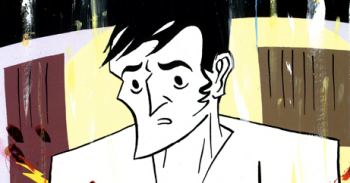 Danny Ceballos
Danny Ceballos
Before thinking about digital mini-comics I guess you have to decide how you define
mini-comic: is it the form, the content or both? For most creators I would hazard a guess that it is both the form of a handmade art object AND the content, which is generally outside of mainstream taste. But for the sake of argument let's place emphasis on content. Why should there be a limited container to deliver this content? Obviously some creators, like a Michael DeForge, look great on a computer screen, maybe sometimes better than the printed work. Dash Shaw's
Body World is one of my favorite internet comics I have ever read and I was surprised that I didn't like (or purchase) the book. I would guess that
Body World was designed to be read on computer screens, (the way it scrolled, the continuously morphing layout), and that this computer screen construction kept it from working as well in a printed form.
You probably can have it both ways, I would imagine if Sean T. Collins and Andrew White had printed up
Hottest Chick In The Game in a mini-comic form, they might have had a best seller. Which begs the question, why didn't they? Was it a commerce issue (printing costs? legal issues?) or an artistic choice? The way the link to this comic was shared at the time is was first published online demonstrates a distinct possibility that folks might have been more than willing to purchase a printed version or even a digital download. Was it deemed not worth the trouble to make a mini-comic? Was it only ever supposed to be free digital content?
I attended an Art Spiegelman talk where he stated emphatically that the internet is no friend to the artist, specifically that the idea that an artist's work is "shared" (i.e. given away or stolen) with no thought of compensating the creators is insane and should be avoided. To a great extent he is right. What is TUMBLR or FACEBOOK but some blank page we are asked to daily fill for free as someone else collects all the cash. Never forget that these and various sites house but do not create content.
So let's consider the form of the mini-comic. It's kinda become iconic, like the classic green Coke bottle. Once you drink the soda (read the comic) you have this nice little bottle to look at (the paper stock, the printing). But these objects are much deeper by their handmade nature. These are objects that extend from the hand of their creators: a
King-Cat has been driven home from the printers and hand folded and hand stapled and hand sealed in a hand lettered envelope by John Porcellino himself. To me it's the equivalent of Jean Luc Godard printing up one of his movies on Super 8 and hand labeling a box to ship to you (it will never happen). Alt comics are the only artistic medium where you can come into such close proximity with its greatest creators and the physical object that is a mini-comic will always be part of this equation.
There are plenty of Alt-comics stars (Gabrielle Bell, Jillian Tamaki, Noah Van Sciver) whose internet presence, via websites for particular comics or merely Blogs & Tumblrs, debuts work that ultimately finds its way to print either as books or in mini-comic format, but almost all this digital content is given away for free. It would seem that to some Alt-comics artists the internet will only ever be a laboratory-slash-calling card-slash-résumé-slash-link to web store. Long live mini-comics form.
*****
Michael May
I'm fascinated too; more by the indifference and disdain than by comiXology's attending SPX. That's possibly due to my own ignorance about comiXology's terms. I'm guessing that there's something in there that makes them an unattractive option for the folks you're hearing from, but I haven't deeply researched the Submit program and don't know. For all I know, the negative reaction is simply an extension of feelings about Amazon. I'd love to talk to the people you have and learn more.
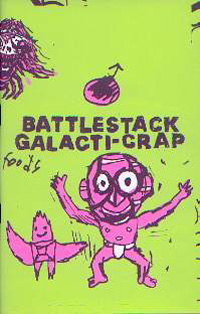
Putting aside the specifics around comiXology, I'm left thinking about the drawbacks to a program
like Submit in general. On the one hand, the digital-reading audience is huge and any tool that helps creators reach more readers could be useful. On the other hand, I can imagine that digital isn't attractive to a certain section of art-comics makers and their fans.
When I've been to shows like SPX, one of the things I love most about the comics on display there is the wide variety to the look of the physical objects. Comics can be printed on almost any material and in any size and shape and often are. My favorite art-comics are those that make use of this and I love coming home from shows with comics of all sorts of weird shapes and sizes and designs. That's lost in the digital world and I can understand why others who love that diversity would resist translating their work to the digital format.
But back to the first hand, the thing I think we've learned about digital readers is that mostly they are not fans of physical media who've now converted to reading on screens. They're a whole new audience that wasn't buying comics before. In other words, they don't attend shows like SPX and they don't care about the physical object. The question about those people then is, "Do I want their patronage enough to sacrifice something in my work to get it?"
In a sense, creators sacrifice nothing by creating a digital version, because the physical comic still exists and is available for those who prefer it. But in another sense, creators have to go to the trouble of converting the comic to an arguably inferior format and I can understand how that process could be creatively deflating.
*****
.(JavaScript must be enabled to view this email address)
*****
*****
posted 12:15 am PST |
Permalink
Daily Blog Archives
November 2019
October 2019
September 2019
August 2019
July 2019
Full Archives


